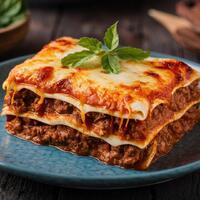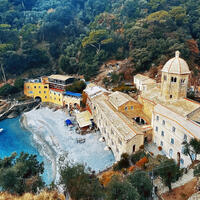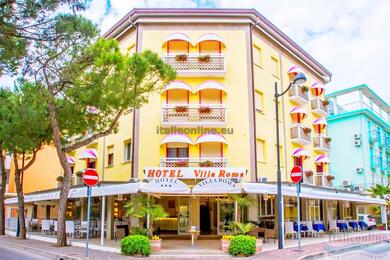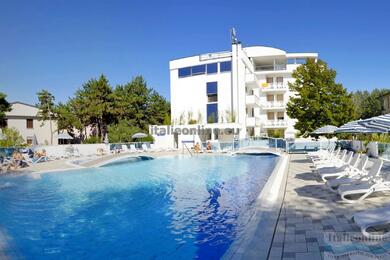The production of Prosciutto Crudo has a long and rich history dating back to ancient Rome. The Romans were the first to dry and salt meat as a way of preserving it. This technique was perfected over time and passed on from generation to generation.
The traditional process of making Prosciutto Crudo begins with the selection of high-quality pork legs. The animals used to produce 'Prosciutto di Parma' can only come from the regions of Emilia Romagna, Lombardy, Piedmont, Veneto, Tuscany, Umbria, Marche, Lazio Abruzzo and Molise.the key element is the use of salt, which is the only preservative in the whole process. Salting is followed by drying and maturing in well-ventilated rooms, where the ham is left to mature for a minimum of 12 months, but often much longer. This process allows the development of a rich flavour and fine texture.
Prosciutto di Parma
Prosciutto di Parma is probably the most famous type of Prosciutto Crudo in the world. It has a Protected Designation of Origin (PDO), which means that it can only be produced in a specific area around Parma. This designation guarantees the high quality and authenticity of the product.
The pigs used to produce Prosciutto di Parma are fed a special diet that includes whey from the production of Parmigiano Reggiano, which contributes to the ham's unique flavour. Salting and drying are followed by a long ageing period, which can last up to 36 months. The result is a ham with a mild, sweet flavour and a delicate texture.
Prosciutto di San Daniele
Another important type is Prosciutto di San Daniele, which is produced in the Friuli Venezia Giulia region . This type also has a protected designation of origin and must be produced in a specific geographical area.
Prosciutto di San Daniele is characterised by its sweet taste and softer texture than Prosciutto di Parma. The special microclimate in the San Daniele del Friuli area contributes to the unique maturing process that gives this ham its specific characteristics.
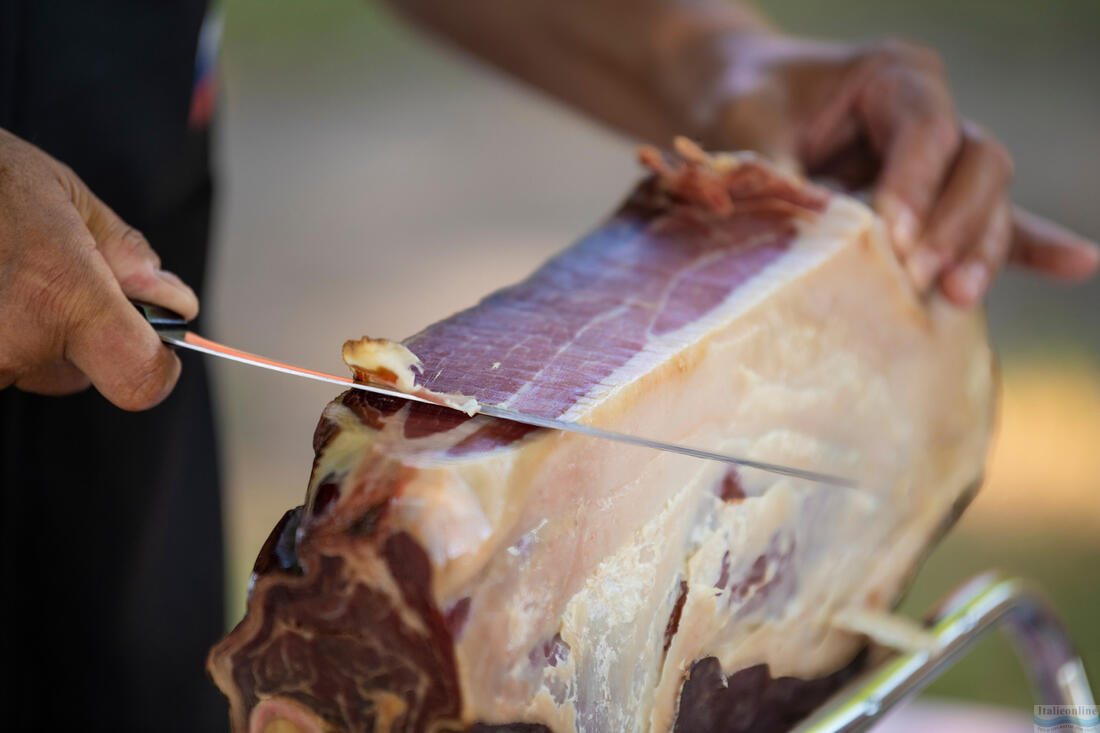
Culinary uses
Prosciutto Crudo is an indispensable part of Italian cuisine. It is traditionally served sliced very thinly, often with melon or figs, which creates a delicious contrast of sweet and salty flavours. It can also be included in various appetizers, pasta dishes and salads. It can be combined with different types of cheese, fruit, vegetables or eggs.
Museum
There is even a Prosciutto Museum (Museo del Prosciutto di Parma) in Parma.
address: Via Fabio Bocchialini, 7, 43013 Langhirano PR
opening hours from 1 March to 8 December:
saturdays, Sundays and public holidays 10 a.m. to 6 p.m
admission:5€ (full price); reduced admission 4€ groups (minimum 15 people), adults over 65; family ticket is then 10€ and valid for two adults and all children in the family, no limit on number



